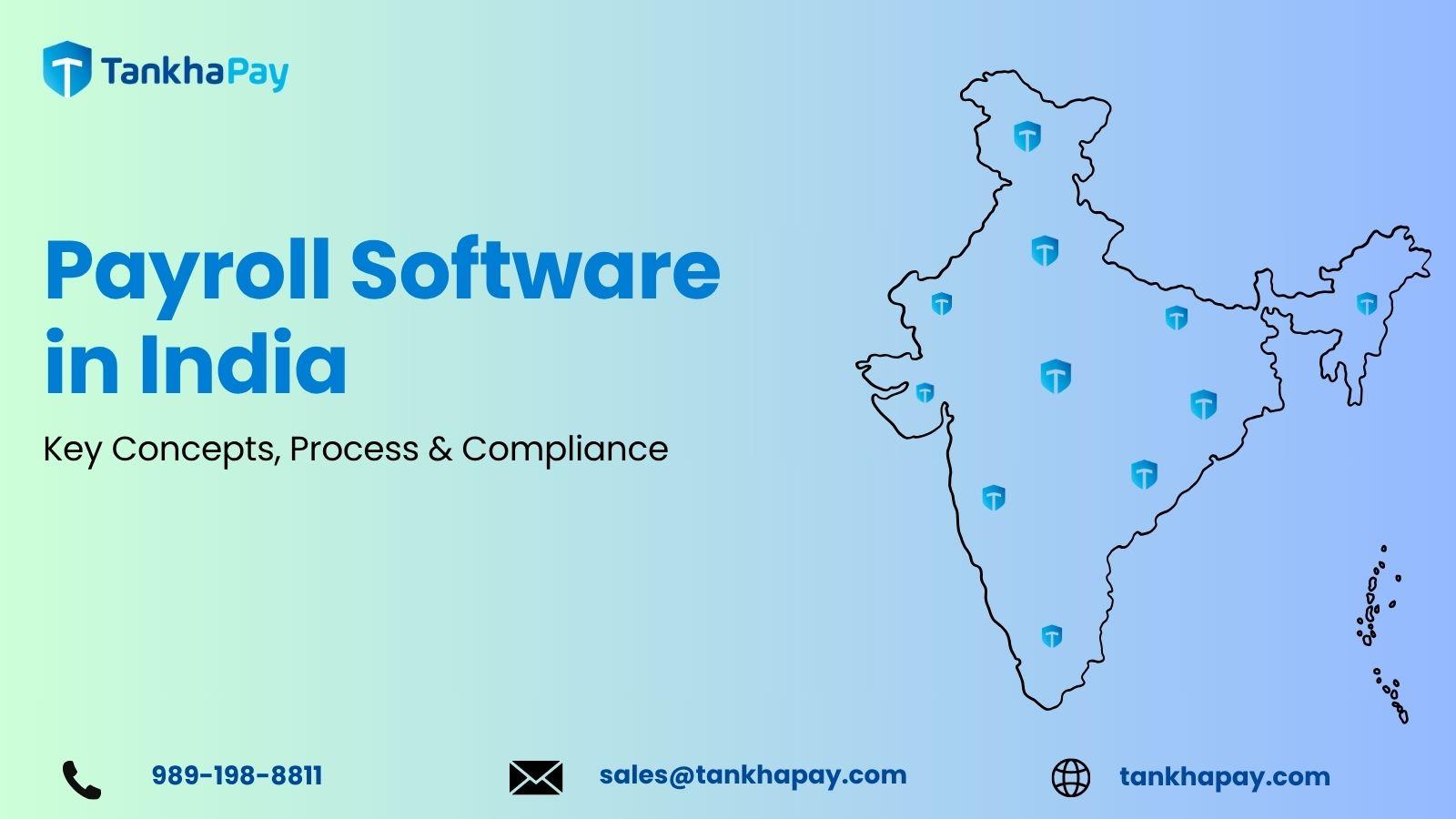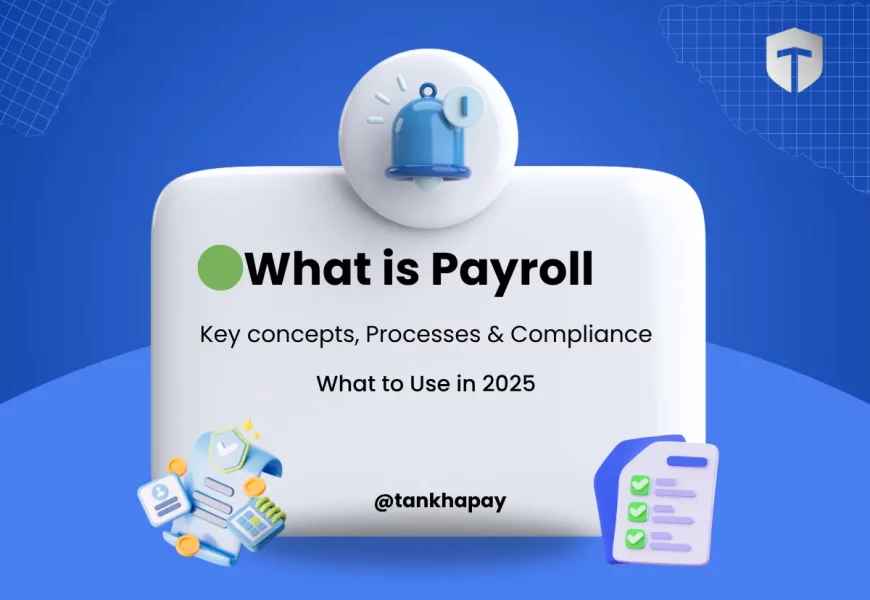Notifications

9 minutes, 20 seconds
-52 Views 0 Comments 0 Likes 0 Reviews

The expansion of work-from-home and hybrid work in India has transformed the way businesses operate—and how they handle payroll. Whether the workers are working from Bengaluru, Bhopal, or Bhubaneswar, businesses today must navigate the complexity of legal requirements in various states. With subtle deductions like EPF, ESI, TDS, and state-specific professional tax requirements, payroll has become more than a monthly routine—it's a compliance nightmare.
This is where payroll software is used.
For Indian businesses that utilize remote or hybrid employees, spreadsheets or even manual procedures are no longer a viable choice. The stakes are too high: filing errors, outdated tax calculations, or non-compliance with labour laws can mean fines, unhappy employees, and erosion of their reputation.
Let's see why modern payroll software in India is the foundation of compliance, automation, and productivity for distributed teams—and what's next.

Indian labor laws continue to evolve. The biggest challenge for distributed workforce companies is keeping up with these updates by regions. During 2025, there have been a few notable updates that have had an impact on payroll:
EPF (Employees' Provident Fund): New limits and electronic filing obligations
ESI (Employees' State Insurance): Salary cap thresholds revised
Gratuity: It now applies to fixed-term workers in some industries
TDS: Increased frequency of changes in tax slabs and surcharge rates
Lacking India payroll software solutions designed to auto-update rules and rates, companies face non-compliance and employee complaints.
Manual payroll processing takes time and is prone to errors. Combine the complexity of remote workers working from different states, and the risk increases manifold.
Automated payroll software ensures:
On-time EPF, ESI, and PT calculation and payment
Instant challan and filing form generation
Automatic due date reminders for submission
Real-time synchronisation of salary and attendance data
Direct bank integrations for disbursals
HR and finance teams, automation for you makes what would otherwise be a high-stress compliance drill an easy one. Remote teams don't mean remote control—with payroll automation, you're in full control.
Indian income tax regimes today offer employees a choice between old and new regimes. Flexibility is wonderful for employees—but overwhelming for payroll administrators.
Payroll software of the new generation in India handles the complexity by:
Allowing employees to select favored regimes via ESS (employee self-service)
Recalculating TDS on a monthly basis based on actual declarations
Provisional and final tax estimate preparation
Keeping pace with current slab rates, cess, and surcharges
It not only helps in more accurate payroll but also helps employees take money decisions when they are working from anywhere.
Professional tax in India is, besides being state-specific, also salary slab-specific, gender-specific, and profession-specific in some states. It would be an absolutely impossible task to track, in case your workforce is spread across Maharashtra, Karnataka, Tamil Nadu, and West Bengal.
Payroll software India solutions come pre-configured with state-level PT rules and:
Auto-deduct PT according to the work location of employees
Facilitate location-based configuration for remote staff
Automatically generate PT forms and returns for each applicable state
Notify state-wise due date and rate change
For businesses expanding in size in India, this feature is a clincher for compliance with no micromanagement of tax regulations.
With distance workforces, transparency in payroll has never been more important. Workers expect their payslips to be delivered in time, with breakdowns, and tax vouchers—electronically and securely sent.
Top payroll software in India offers:
One-click generation of payslips and sending by email
Format customization showing allowances, deductions, and net pay
Auto-generation of Form 16 for TDS reconciliation and filing ITR
Secure access via employee portals or mobile apps
This increases employee confidence and reduces the HR effort of handling payroll inquiries, especially across locations and time zones.
Compliance does not only mean salary payments. Companies must provide:
Monthly: EPF, ESI, PT returns
Quarterly: TDS returns (Form 24Q), e-TDS filing
Annually: Form 16 distribution, payroll audit summaries
Without automation, it's a logistical nightmare to track all this through distributed teams.
Payroll software provides:
Compliance dashboards with future due dates
Pre-filled reports with automatically calculated figures
File-ready documents in government-required formats (such as XML, Excel, or PDF)
Secure storage for 8+ years of compliance data
With this, finance teams can produce reports in minutes— even when offsite.
Imagine if your payroll software warned you before you made an error.
That's precisely what compliance dashboards in contemporary payroll software India solutions provide. Such smart features assist:
Track filing deadlines and outstanding statutory payments
Visualize missing employee KYC or invalid tax IDs
Auto-flag non-conformant salary structures
Display real-time compliance scores for your business
For hybrid and remote teams, these dashboards help bring much-needed visibility to decentralized payroll processes, ensuring leadership, HR, and finance remain on the same page.
In India, payroll non-compliance can result in fat penalties:
₹5,000–₹1,00,000 for delayed EPF deposits
Interest and late fee on default of TDS
State labor department notices due to incorrect PT deductions
Gratuity disputes escalating to legal processes
Smart payroll software keeps you away from taking these risks with:
Automated statutory return validation
Bank integration for timely payment of wages and tax
e-verification workflows
Audit trails and logs of all the payroll activities
Notification and alerts for HR and finance stakeholders
For remote companies, these abilities ensure that geography is no longer a limitation on compliance.
Payroll's future is all about predictive compliance and AI-driven governance. In 2026, expect to witness:
AI-powered anomaly detection in salary disbursals
Voice-directed payroll processing via virtual assistants
Decentralized filing of compliance using blockchain audit trails
Structuring of salaries real-time based on dynamic tax legislation
Cross-border compliance modules for Indian teams working overseas
Adopting the latest payroll software in India today ensures that your company will be ready for the problems of tomorrow.
Remote and hybrid team payroll management in India is not just about paying salaries—it's about staying compliant, keeping employees informed, and avoiding fines. Manual systems can't keep up with different tax legislation, state-by-state nuances, and regulatory changes.
The right payroll software is a partner—not just an appliance. It automates from EPF filing to sending payslips, gets your books right, and lets your HR and accounting teams stress about strategy, not spreadsheets.
Whether you're working with a remote workforce, the best choice you'll make this year is choosing reliable, automated payroll software India.
Payroll Software Implementation Payroll Software Payroll Management Services payroll systems #DigitalPayments best payout Payroll PayrollOutsourcing Payroll Software in India

